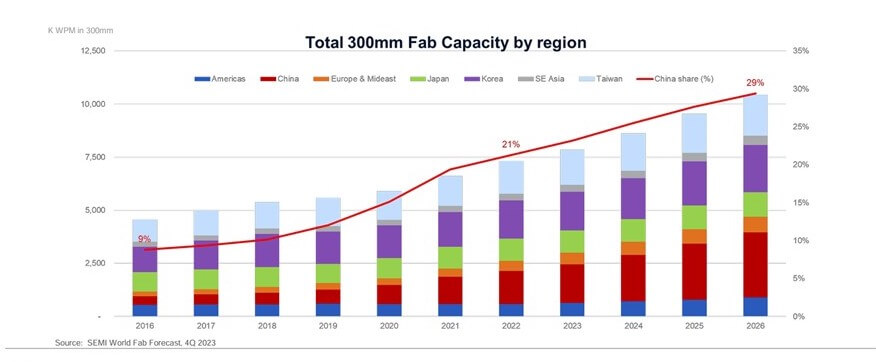China used trade protection and cheap wages & grabbed industry from the leading industrial power exactly the same as the US did with Britain.

The tech/science lead follows the manufacturing floor, with some delay, this was, again, the same with Britain & the USA.
The dynamics of industrialization are well understood at this point. The first books to read are “Bad Samaritans” and “Wealth and Democracy”.
Unlike Japan or South Korea, China has a larger population than America (same as America vs. Britain) and is has a large land mass and plenty of resources. In fact, it has slightly more land area than America.
Initial industrialization in England is an interesting story and still hotly debated. Later industrialization waves are mostly all the same. (The USSR is an exception, as are city states.)
Big leaps, as opposed to adaptations of existing models almost always come from states in hot competition, and among them the peripheral states usually win (Britain, for example, is peripheral to Europe.) The biggest tech surges in Chinese history came during warring states periods.
Japan’s rise was more impressive than China’s, as the first non-European nation to pull it off. But as an island nation with limited population, they were sharply limited. They made 2 runs at the US, one a war, one industrial, and neither let them become the foremost power.
The West was very good at keeping everyone but client states from industrializing. Even Japan needed British aid (the first time), then America’s (the second time.) But the West got stupid under neoliberal “end of history” ideology & let China run the playbook, thinking it wouldn’t challenge the West. Oops.
Americans probably should have learned from the Western experience with Japan. The British enabled Japan’s rise only to have Japan attack British possessions. Without American aid, that loss would have been permanent. But China is a continental power w/a massive population. The stupid was epic.
A radical change in economic model hasn’t happened yet, and seems unlikely to before ecological and economic collapse puts an end to the viability of the current model. Looking at Chinese cities with the 7 lane highways is instructive. It’s just a better version of the same old
A complete change of the permission system will be necessary for radical economic change. No one in power, whether in the West or China, wants that or can even imagine it.
Who knows, radical economic change might happen in China when collapse really starts biting. After all, they have the manufacturing base. But usually it happens at a periphery or in a tight area with multiple competing states.
This stuff is fairly well understood. However it’s not economists who put the pieces together, it’s sociologist and historians and even some anthropologists. Economists have done more damage to the West than astrologers did to Chinese dynasties. MBA factories get an honorary mention. (They mostly weaponized economic theories, as when they noticed economic theory saying that high profits come from not competing.)
One of the most instructive trends right now is watching so many people screaming about population collapse, when what the world actually needs is a lower population. (We could have avoided that necessity, but the window is closed. Sometimes you have to act at the right time.)
All people who yell about lower birth rates can imagine is economic growth through population expansion. Anyone who thinks that way can’t create a new economic model, they’re stuck in the old one. (Elon Musk is a good example.)
People who can’t even understand population overshoot are incapable of the thinking required to deal with the world’s actual problems.
We’ll talk about permission systems at a later date. As noted, they’re key.


